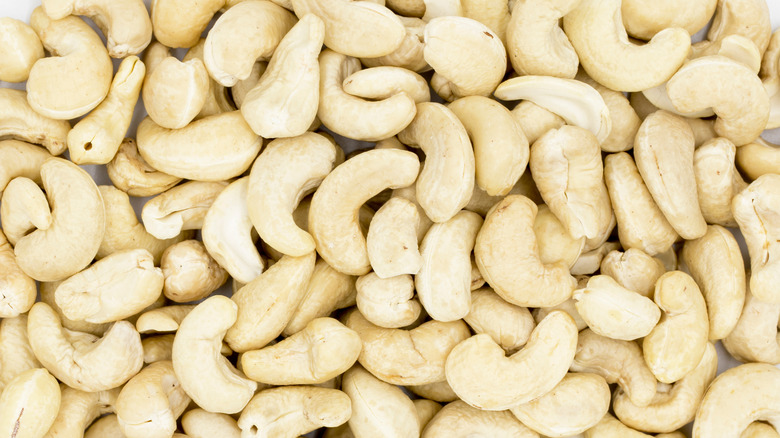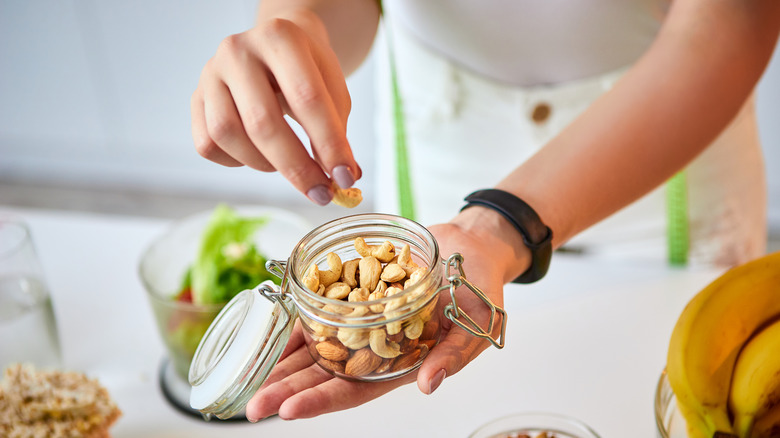Here Are The Benefits Of Eating Cashews
Cashews are a creamy and mildly sweet snack that many of us enjoy. Although they're technically seeds from the cashew tree, they are treated as nuts and often found in nut mixes. Cashews contain a variety of vitamins and minerals, including copper, magnesium, zinc, and iron (via Healthline). They also contain manganese, selenium, thiamine, and vitamin K. Cashews are high in unsaturated fats, which are healthy fats associated with a lower risk of heart disease. One ounce of these seeds contains five grams of protein, which is about the same amount of protein as many meats.
Cashews also contain polyphenols and carotenoids, which are two types of antioxidants. Antioxidants help fight against damage caused by free radicals in the body and can prevent diseases like cancer and heart disease. Although cashews are sometimes viewed as fattening, they can actually help you lose weight with the protein, fats, and fiber inside that will keep you full after eating.
Other reasons to enjoy cashews
The protein, fiber, and fat content in cashews can also help you manage your blood sugar levels. "By keeping your blood sugar stable, cashews can help you feel satiated for longer and may even help with weight management," Mia Syn, RDN, told Livestrong. "They likely won't spike your blood sugar as much as the simple carbohydrates in some snack foods might." The vitamins and minerals in cashews play important roles in your body. Copper, for example, is essential for skin and bone health. Other vitamins protect the skin's barrier. "Cashews also contain vitamin E, which acts as an antioxidant to help protect cells from the damaging effects of free radicals, and therefore may help slow the aging process," said Syn.
Are there any downsides to cashews? Well, yes. Although they are a nutrient powerhouse, cashews are relatively high in fat and calories. Enjoy them often, but stick to a one-ounce portion size each day.


